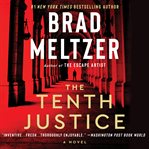Review by Booklist Review
Mr. Moneybags takes on the street people in his latest novel. Is there a moral here?
From Booklist, Copyright (c) American Library Association. Used with permission.
Review by Publisher's Weekly Review
America's most popular author is arguably its most popular crusader as well, tilting his pen against myriad targets, including big law (The Firm, etc.), big tobacco (The Runaway Jury), big insurance (The Rainmaker) and now, in perhaps his sweetest, shortest novel, against anyone, big or little, who treats the homeless as less than human. The expected powerhouse opening involves the hostage-takingby an armed, homeless man who calls himself Misterof nine attorneys of a huge law firm headquartered in D.C. Among the nine is narrator Michael Brock, an antitrust lawyer who receives a faceful of blood when a police sniper blows away Mister's head. "I'm alive! I'm alive," Michael cries like Ebenezer Scrooge, but, like Scrooge, this greedy hotshot is ripe for a moral awakening. The next day, Michael visits the shabby offices of Mister's attorney, Mordecai Green, who explains that Mister and others had been illegally evicted from makeshift housing on orders from a real-estate development company represented by Michael's firm. Inspired by Green and shaken by his firm's complicity, Michael volunteers at a homeless shelter. When a family he meets there dies on the street, and turns out to have been among the evictees, Michael quits his job, goes to work for Green and, using as evidence a file he steals from the firm, aims to sue his former employer on behalf of the evictees. In turn, the firm places Michael in its crosshairs, pressuring him to give up the file through legal maneuvers, having him arrested and hints of darker means. The cat-and-mouse between Michael and the firm is vintage Grisham, intricately plotted, but the emphasis in this smoothly told, baldly manipulative tale is less on action and suspense, which are moderate, than on Michael's change of heart and moving exploration of the world of the homeless. Dickens would be well pleased, and so will Grisham's fans. 2.8 million first printing. (Feb.) (c) Copyright PWxyz, LLC. All rights reserved
(c) Copyright PWxyz, LLC. All rights reserved
Review by Library Journal Review
No plot, no title, no page count, and no doubt it will be one of your biggest spring orders. On-sale date is February 4. (c) Copyright 2010. Library Journals LLC, a wholly owned subsidiary of Media Source, Inc. No redistribution permitted.
(c) Copyright Library Journals LLC, a wholly owned subsidiary of Media Source, Inc. No redistribution permitted.
Review by School Library Journal Review
YA-Michael Brock, a successful young attorney for a large, prestigious law firm in Washington, DC, is taken hostage by a homeless veteran in the dramatic opening chapter of Grisham's newest novel. In an effort to understand the motives of his assailant, who dies as the hostages are freed, the young man volunteers at a soup kitchen and works at a legal-aid society. There he begins to recognize the plight of the homeless. However, serious questions remain as to the role Brock's firm had in evicting Mister and other homeless people during a cold winter. In an effort to delve into this mystery, Brock steals a file, thus cutting himself off from friends and his former way of life. The author's reputation assures the popularity of The Street Lawyer, and it is an excellent choice for teens as the plot is relatively simple and fast moving. However, those readers hoping for as much excitement or suspense as there was in The Firm will be disappointed. Michael's transformation from greedy attorney to a sympathetic social worker is gradual and credible. Other characters are not as well developed. As Grisham includes many statistics and other relevant information on the homeless, this is an good choice for sociology students.-Claudia Moore, W. T. Woodson High School, Fairfax, VA (c) Copyright 2010. Library Journals LLC, a wholly owned subsidiary of Media Source, Inc. No redistribution permitted.
(c) Copyright Library Journals LLC, a wholly owned subsidiary of Media Source, Inc. No redistribution permitted.

